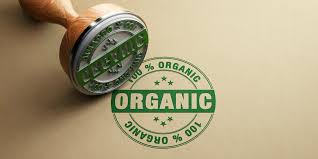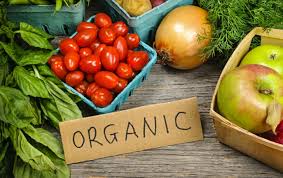Organic foods are those produced or grown without the use of synthetic chemicals such as pesticides, fertilizers and does not contain genetically modified organisms. The process of organic crop production promotes ecological balance, biodiversity, conservation and recycling of resources.
Organic livestock are produced without antibiotics or growth hormones, genetic engineering and ionizing radiation among other requirements while the crops are cultivated without using fertilizers made with synthetic ingredients conventional pesticides but ensures that cultivation practices that maintain or improve the physical, chemical and biological condition of soil and minimize soil erosion are carried out.
Organic Foods; These are foods produced or grown without the use of synthetic chemicals such as pesticides, fertilizers and does not contain genetically modified organisms. They are food sources that promote ecological balance, biodiversity, conservation and recycling of resources.
In terms of chemical composition, it has 17% higher concentration of polyphenols compared to conventional grown crops, 69% higher concentration on other nutrients such as flavonols, phenolic acid and anthocyanins. It also has 69% higher flavonones.
Production of organic foods is mostly carried out by farmers who emphasize the use of renewable resources and the conservation of soil and water to enhance environmental quality for future generations.
Read Also: Agronomic Practices for Control of Soil Erosion (Water and Wind)
Organic Foods Standards

Organic is a labeling term that indicates that the food or agricultural product has been produced following approved methods. The standards or requirements for organically produced food are Organic standards for livestock;
1. Organic meat, poultry eggs and dairy products come from animals that are given no antibiotics or growth hormones, mammalian or avian byproducts or other prohibited feed ingredients e.g. urea, manure or arsenic compounds.
2. The livestock must be produced without genetic engineering, ionizing radiation or sewage sludge and they must be managed in a manner that conserves natural resources and biodiversity.
3. They must be managed organically from the last third of gestation (mammals) or second day of life (poultry). They must be raised per animal health and welfare standards.
4. The animals must be fed 100% certified organic feed (access to certified organic pasture for the entire grazing season for ruminants), except for trace minerals and vitamins used to meet the animals nutritional requirements.
5. Animals must be allowed year round access to the outdoors except under specific conditions e.g. hash/ unfavorable weather conditions.
6. Animals must be raised in a way that accommodates their health and natural behavior such that the animals have access to: shade for fresh air, clean dry bedding, clean drinking water, shelter from direct sunlight, outdoor for exercise etc.
Read Also: Factors that Determine the Amount of Wind Erosion
Organic Standards for Food Crops

Organic food crops should be produced without using fertilizers made with synthetic ingredients or sewage sludge. Soil nutrients / fertility must be managed through rotations, cover crops and the application of plant and animal materials.
Organic food crops should be produced without using conventional pesticides.
The crops must be produced without using bioengineering or ionizing radiation.
The farmer must select and implement tillage and cultivation practices that maintain or improve the physical, chemical and biological condition of soil and minimize soil erosion.
In conclusion, organic standards for crops and livestock describe the specific requirements that must be met before its labeled or certified organic. In livestock production, animal production must be devoid of antibiotics, growth hormones, fed organic foods etc while crop production has to be devoid of chemicals e.g. synthetic fertilizer, pesticides, herbicides among other requirements.
Organic foods produced or grown without the use of synthetic chemicals such as pesticides, fertilizers and does not contain genetically modified organisms. The practices involved promote ecological balance, biodiversity, conservation and recycling of resources.
Organic standard is a requirement that needs to be followed in order for the food or agricultural product is labeled or termed organic. In livestock production some of the requirements include: non-usage of growth hormones, antibiotics, genetic engineering, ionizing radiation etc. while for the crop production no usage of chemicals e.g. pesticides, synthetic fertilizers, herbicides, sewage sludge etc.
Read Also: Exploring the Benefits of Environmental Policy
